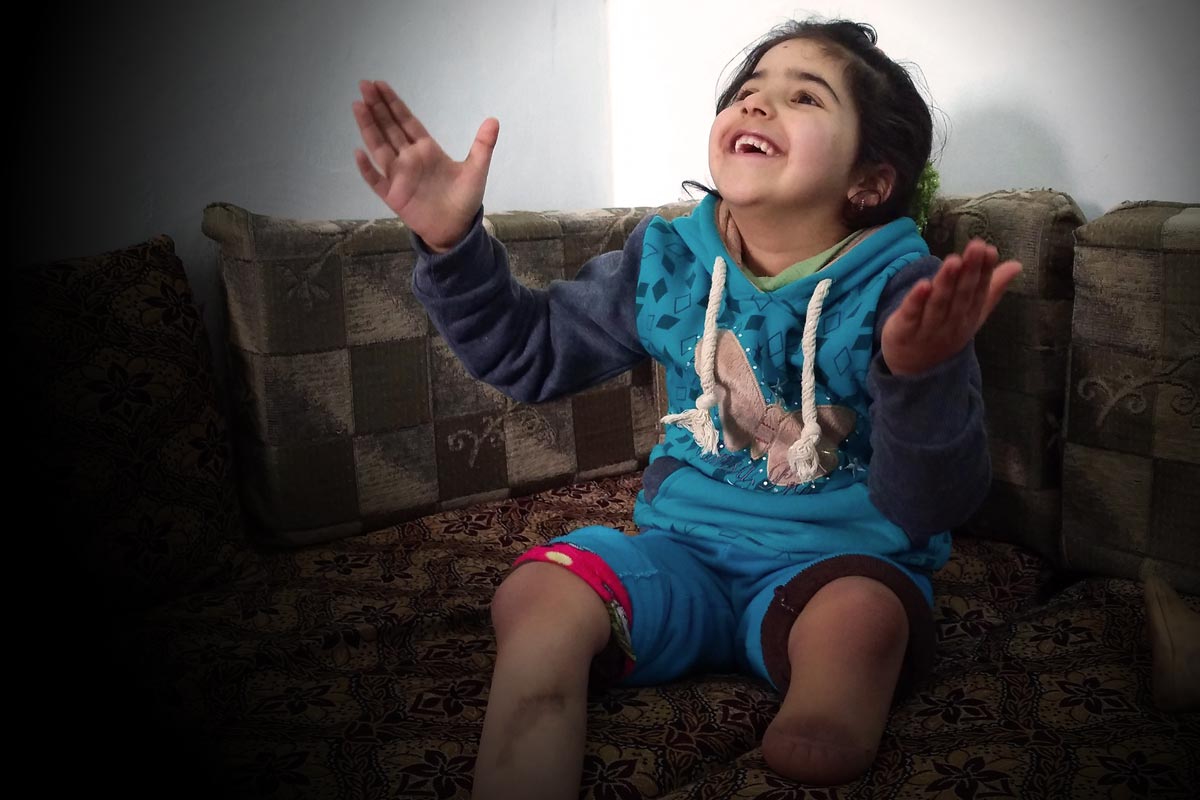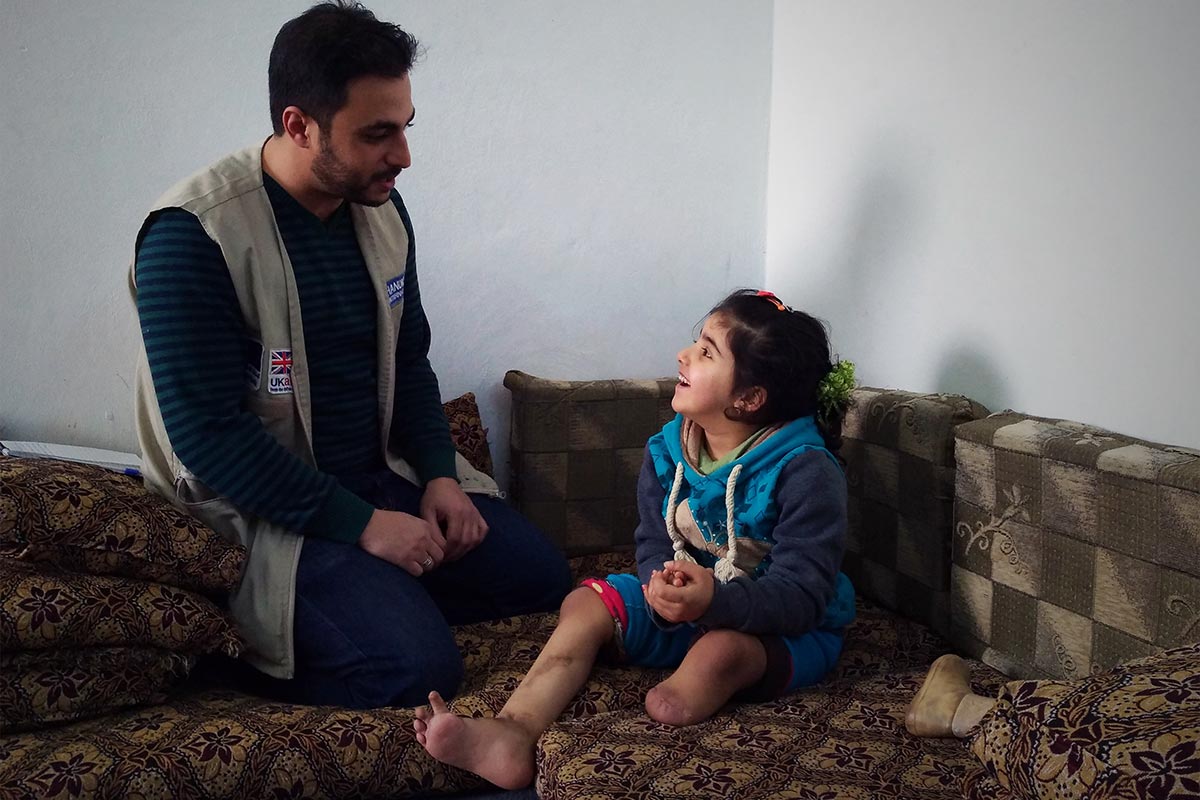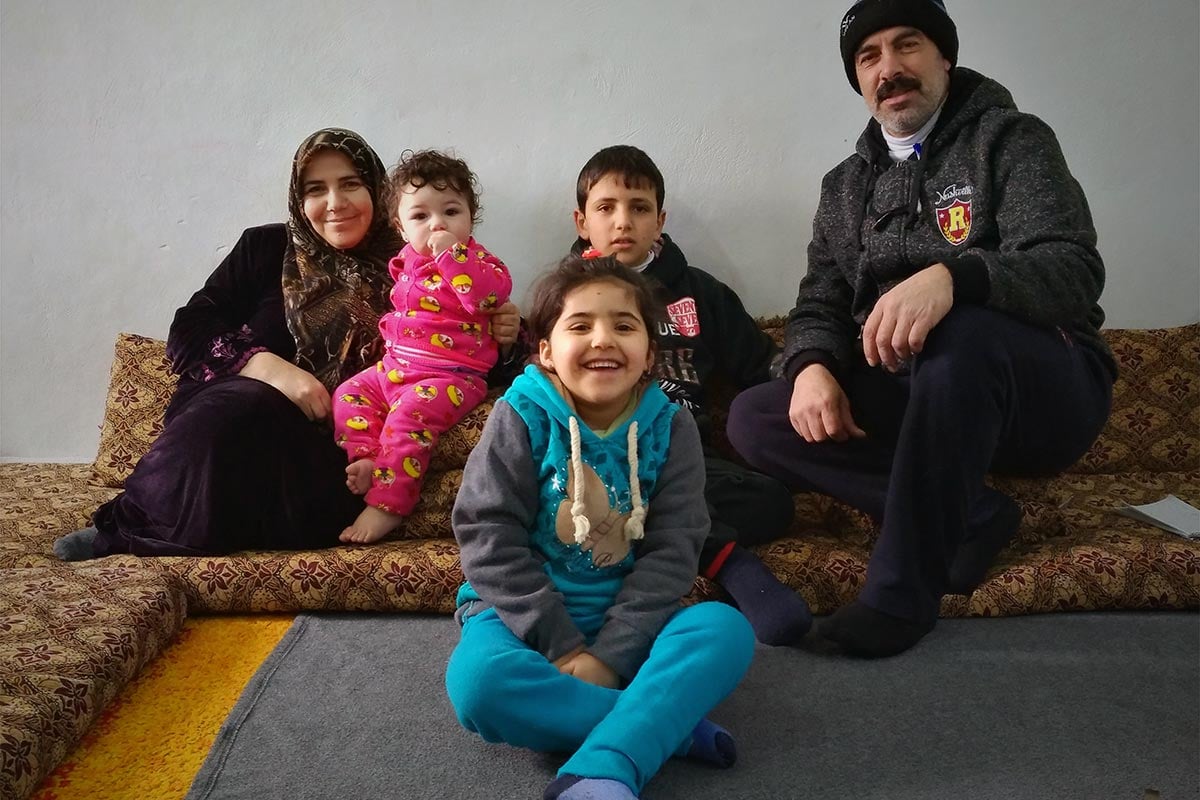One of Humanity & Inclusion's youngest beneficiaries in Jordan is seven-year-old Salam, a wonderfully cheerful little girl. Her spirit is remarkable, considering that in autumn 2015, Salam was injured in a terrible accident with an unexploded weapon.
Ali, who now cares for Salam, came to Jordan as a refugee at the start of the war in Syria. As he drinks a cup of tea in his living room, he tells us about his first meeting with the little girl.
“One day in October or November 2015, I got a call. They said that one of my relatives had been rushed to Ramtha hospital in northern Jordan and was seriously injured.”
Ali and his wife immediately drove to the hospital and discovered it was Salam. “I’d never met Salam before, because she was the daughter of one of my wife’s distant cousins. But her parents had stayed behind in Syria and I immediately thought of her as my own daughter.”
Surgeons had just amputated Salam’s left leg and part of her right foot. She was still unconscious.
“It was so hard to see her like that,” recalls Ali. “I couldn’t understand how an innocent child could lose a leg in a war she didn’t even understand...”

“She was too young to know it was dangerous,” says Ali.
On the day of the accident, Salam and her family had gone to pick olives. She was playing in a field with her little brother when she spotted something unusual and bent down to pick it up. It was an 'explosive remnant of war' - an unexploded weapon from the conflict.
The bomb exploded. People ran to help them, but it was too late. “Salam was severely injured. Her little brother’s heart was hit by shrapnel and he died instantly.”
In the commotion, Salam was rushed to hospital in Jordan before her parents were able to go with her. They knew Ali and his wife lived there and that Salam would be safe with them.
“Salam had to stay there for six months after the accident,” says Ali. Every day, he and his wife visited the little girl in hospital and supervised her recovery. It was there that she first met HI's team. As her recovery progressed, we fitted her with a a prosthesis and we continue to provide her with regular physical therapy care.

When she was discharged, Salam’s parents asked if she could stay in Jordan with Ali and his wife. “If she had gone back to Syria, she wouldn’t have been able to benefit from rehabilitation sessions and her prosthesis would not have been changed regularly,” explains Ali. “Her parents live in a besieged area and there are no health services available for people like her.”
Ali watches Salam affectionately as she plays next to him. “I had sons when she came into our life, but no daughters. For me, her arrival is a blessing. I’ve always wanted a daughter.”
“Salam is so cheerful and really intelligent. Next year, we’ll send her to school and I hope she’ll have a bright future.”
Salam lifts her head and adds with a smile: “I want to be a cook when I grow up!”

All photos © Elisa Fourt/HI








